Group Of Nine Executed In Iran As Mass Executions Surge
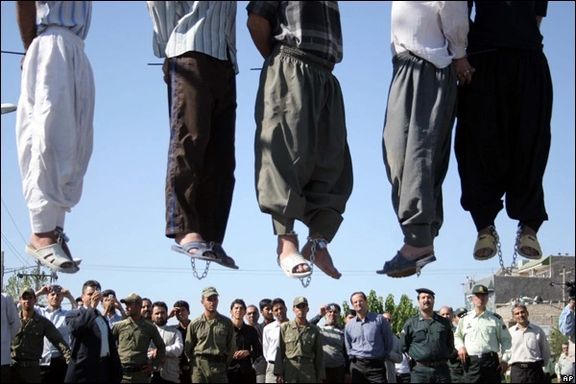
A group of nine Iranian prisoners has reportedly been executed in Ghezel Hesar Prison in Karaj, west of the capital Tehran.

A group of nine Iranian prisoners has reportedly been executed in Ghezel Hesar Prison in Karaj, west of the capital Tehran.
The executions were carried out in the early hours of Wednesday morning, with the prisoners facing a range of charges, including murder, drug-related offenses, and armed robbery.
Of the executed prisoners, two have been identified as Bahman Fat’hollahzadeh and Rasoul Teimouri, who were imprisoned on drug-related charges.
What adds to the gravity of the situation is that the execution of the prisoners has not been officially announced by prison authorities or responsible organizations, categorizing them as "secret executions” as reported by the US-based Human Rights Activists News Agency (HRANA).
Group executions have been previously documented in Ghezel Hesar Prison in Karaj, including the execution of six prisoners on Thursday, November 1, and the execution of 10 prisoners on October 18.
Simultaneously, the Hengaw Human Rights Organization reported the execution of another prisoner in Kermanshah Prison, located in the western part of Iran. He was identified as Farhad Aghaie, 32, who had previously been sentenced to execution on charges of murder.
Following the amendment of the drug control law in 2017, under international pressure, the number of drug-related executions in Iran had decreased to an average of 26 cases per year. However, in 2021, the trend was reversed, resulting in a notable increase in such executions.
Amnesty International's recent report said from January 1, 2012, to July 31, 2023, over 5,000 individuals, including at least 57 children, have been either executed or sentenced to death in Iran.

Amnesty International has issued a warning regarding the potential execution of Reza (Gholamreza) Rasaei, a detainee linked to last year's nationwide protests in Iran.
The international human rights organization reports that Rasaei, hailing from Iran's marginalized Kurdish and Yarsan ethnic and religious minorities, has allegedly been subjected to torture.
The Yarsan faith, also known as Ahl-e Haqq, is among the oldest Middle Eastern religious traditions, with an estimated three million followers in Iran, primarily in the western Kurdish regions, and an additional 120,000 to 150,000 in Iraq, known as Kaka'i.
Yarsan adherents have encountered various challenges, including difficulties in registering their children as Yarsan at birth, restrictions on constructing places of worship, and the constant fear of persecution for printing their holy book.
According to Amnesty's report, Rasaei underwent an "unfair trial" on October 7 in Kermanshah province, during which he was convicted of "murder" and subsequently sentenced to death, with his forced confessions tainted by torture serving as evidence.
Amnesty says Rasaei was convicted of involvement in the killing of an agent, identified as a member of the Revolutionary Guards by Iranian state media, during a protest in Sahneh, Kermanshah province, on November 18, 2022. Rasaei vehemently denies any involvement. Additionally, he was convicted of "disrupting public order" and sentenced to one year in prison along with 74 lashes.
Amnesty International has called upon Iran's Chief Justice, Gholamhossein Mohseni Ejei, to "immediately quash the conviction and death sentence against Rasaei."
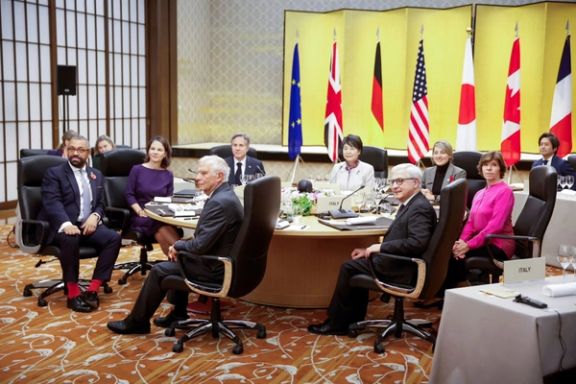
The Group of Seven (G7) nations have issued a call to Iranian authorities urging them to cease their support for Hamas and Hezbollah amid the war in Gaza.
In a joint statement released on Wednesday following a two-day meeting in Tokyo, foreign ministers from G7 countries underlined the critical need for Iran to refrain from providing assistance to Hamas and from taking actions that could further destabilize the Middle East.
"We call on Iran to refrain from providing support for Hamas and taking further actions that destabilize the Middle East, including support for Lebanese Hezbollah and other non-state actors," the foreign ministers of the G7 countries noted, referring to the network of proxies Iran has across the Middle East.
It comes while Israel and Hamas are engaged in the worst Gaza war since the Iran-backed proxy took over control of the strip in 2007 following the Hamas invasion of Israel on October 7. In one day Hamas claimed responsibility for the slaughter of 1,400 mostly civilians and a further 241 taken hostage to Gaza. Lebanese Hezbollah, Iran's biggest regional proxy on Israel's northern border, has been carrying out increasing attacks since the war began in the worst violence since the second Lebanon war.
US Secretary of State Antony Blinken and his counterparts from Britain, Canada, France, Germany, Japan, and Italy reiterated their unwavering support for Israel's right to self-defense and the protection of its citizens in accordance with international law.
In response to the attacks on October 7, the Israeli military has conducted a sustained series of airstrikes in Gaza. The Hamas controlled health ministry in Gaza has claimed that the death toll on their side has now surpassed 10,300.
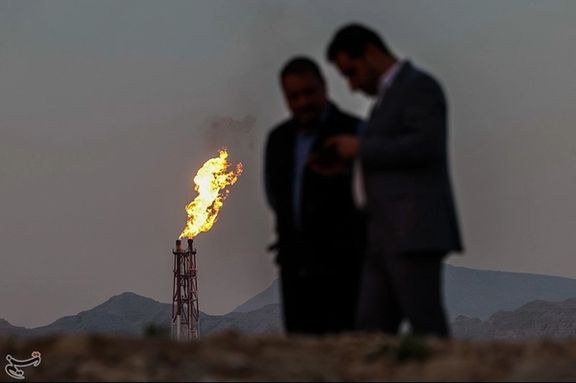
A prominent Iranian economist, highlighting corruption and mismanagement, has questioned the persisting large budget deficit despite increased oil exports.
In recent months, Iran’s oil shipments have hovered around 1.5 million barrels a day, substantially higher than in 2019-2022 period, yet government finances remain in shambles and the national currency is near its historic lows. One US dollar now buys more than 510,000 rials, or twice as much as in mid-2022, and 12 fold more than in 2018.
Farshad Momeni, a prominent professor of economics in Tehran sharply attacked the government in a seminar this week for the economic chaos reigning in the Islamic Republic. “The government and parliament are passing the ball to one another, claiming that, on the one hand, we had the highest-ever oil sales in the post-JCPOA period, and on the other hand, we are facing one of the worst financial deficits this year! This is by no means a good sign,” he warned.
Even if Iran offers China, its main customer, steep crude oil discounts and earns just $60 per barrel, annual earnings should exceed $30 billion, more than triple the 2019 income.
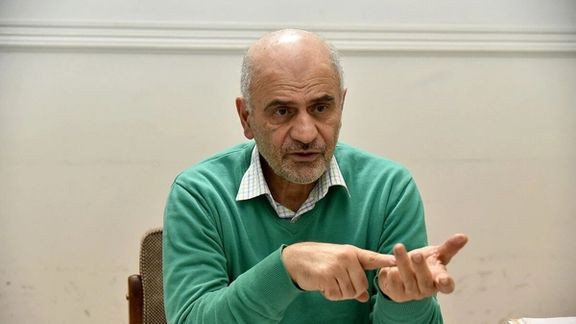
Iran’s oil exports dropped from a high of around two million barrels per day to as low as 300,000 in 2019-2020 after the United States withdrew from the JCPOA nuclear deal and imposed ‘maximum pressure’ sanctions.
The seminar where Momeni spoke dealt with oligarchical corruption in Iran, where 80 percent of the economy is controlled by governmental or religious entities, and political connections determine who is put in charge of large companies. The same principle of insider influence peddling works in domestic and international trade. Well-connected individuals and groups compete for special government favors, permissions, and facilities to monopolize a given market or sector.
Momeni argued during his remarks that the government and parliament lack a rational and scientific approach to the economy, especially over fundamental budget issues.
"It means that we are currently experiencing the phenomenon where hundreds of times, under the banner of very good causes, very bad deeds have been committed, and later it becomes clear that a mixture of ignorance, corruption, and sinister motives have been behind these issues,” Momeni argued.
Building on his argument, the economist warned about a shady government plan approved this year to sell public properties to the so-called private sector. What the government says are private investors are mainly regime insiders with money and connections, who can buy up valuable land and other assets at below-market prices.
Critics see the hasty plan to sell off government properties and companies as a way of "plundering Iran’s resources in the course of liquidating the country’s national assets."
Conservative news website Alef quoted Ahmad Tavakkoli, the head of the Iranian NGO, Transparency and Justice Monitor, as saying in a September letter to lawmakers, the heads of the three powers of the government and the privatization board that the plan "should be totally rejected."
In the past 15 years, most of government privatization deals have proven to have been nothing more than gross cases of corruption that have come to light repeatedly, despite tough controls over the media.
Momeni even warned about a fate for Iran similar to the Soviet Union. "If you do not want to learn from Iran's experiences, at least you should look at the experience of the Soviet Union's collapse! In a government that claimed to be communist, there were mafias that controlled the informal economy."
Lack of economic freedom and competition in Iran is backed by multiple studies. Just recently, the Fraser Institute in its latest Economic Freedom of the World report, measured the extent to which a country's policies and institutions support economic freedom, with data from 2021 serving as the basis for the 2023 assessment.
With a paltry score of 4.53 out of ten, Iran shares the lowly position with Libya, outpacing only Yemen, Sudan, Syria, Zimbabwe, and Venezuela in terms of economic liberties. The other low-ranking countries all have “brotherly” ties with the Islamic Republic.
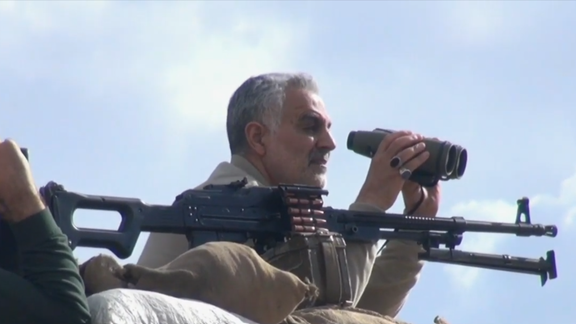
An Iranian lawmaker has raised the close ties between Mohammed Deif, Hamas' military chief, and former IRGC-Quds force commander Qassem Soleimani.
Esmail Kowsari, an ultraconservative and former IRGC general said that Deif, the chief of the Izz ad-Din al-Qassam Brigades, Hamas' military wing, and Soleimani "collaborated on the planning of numerous operations over the years”.
The Hamas assault on October 7 saw the Iran-backed proxy launch over 3,000 rockets at Israel before invading by land, air and sea in the deadliest single day for Jews since the Holocaust.
At least 1,400 mostly civilians were killed and at least 241 hostages taken to Gaza, including children and the elderly. In retaliation, Israel has since launched its most comprehensive invasion of Gaza in decades, resulting in the deaths of thousands of Palestinians as the Jewish state vows to rid the strip of Hamas.
Before his assassination by the US in 2020, Islamic Revolution Guards Corps commander Qassem Soleimani allegedly wrote to Deif that Tehran would continue supporting Palestine "despite all pressures and sanctions.” According to Hezbollah-affiliated al-Mayadeen news channel at the time, Soleimani said "the Islamic Republic of Iran will not abandon Palestine and the Palestinian people".
Deif, one of the architects of the horrific attacks, along with Yahya Sinwar, Hamas' ruler in the Gaza Strip, was added to the American list of Specially Designated Global Terrorists in 2015.
Iran has expressed its unwavering support for Hamas and condemned the US support of Israel. Iranian backed proxies have since launched dozens of attacks on US facilities in the Middle East, while simultaneously attacking Israel from its borders and beyond.
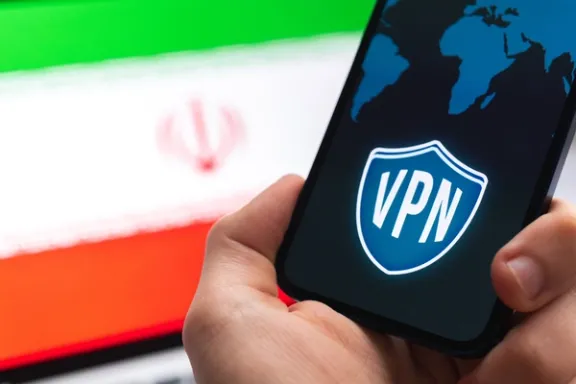
An Iranian MP claims there is a link between those lobbying for internet censorship and the companies producing censorship circumvention tools like VPNs.
Javad Nikbin, a member of the Cultural committee of the Iranian Parliament, made the connection, which also followed recent comments by another parliament member, Jalal Rashidi Kouchi, who estimated that the financial turnover of VPN sellers in Iran amounts to approximately 800 million to 1 billion dollars annually.
Additionally, another lawmaker, Mohammad Hassan Asafari, has previously alluded to the infiltration of government organizations by these VPN companies.
Since September 2022, Iran has witnessed an increase in censorship measures, often accompanied by internet shutdowns, in response to protests. It was anticipated that with the subsiding of these protests, popular messaging apps used by citizens would have their filters lifted. However, this did not occur.
Instead, the market for VPNs and circumvention tools designed to bypass filtering has thrived. According to parliament members, the income generated by the sellers has skyrocketed to hundreds of millions of dollars each year.
Reports from the Ministry of Communications in 2019 indicated that at least 28 domestic companies were engaged in the business of selling VPNs. Despite the awareness of judicial and security authorities regarding this matter, no action has been taken against these activities. The revelation of these connections between filtering advocates and VPN producers raises concerns about the implications and potential for further regulatory action in Iran's online space.